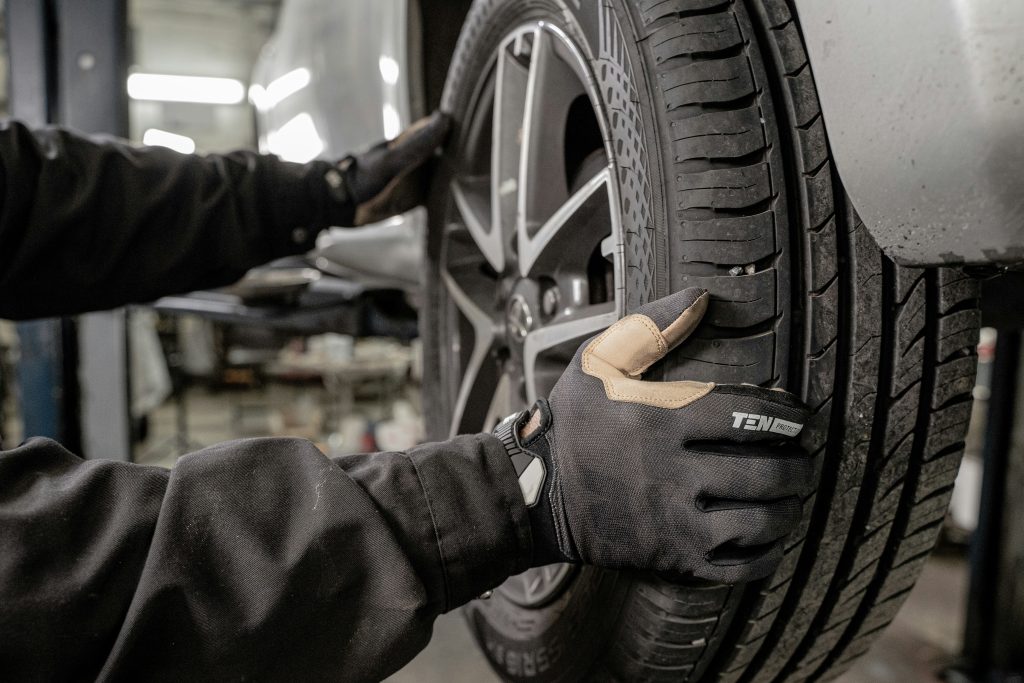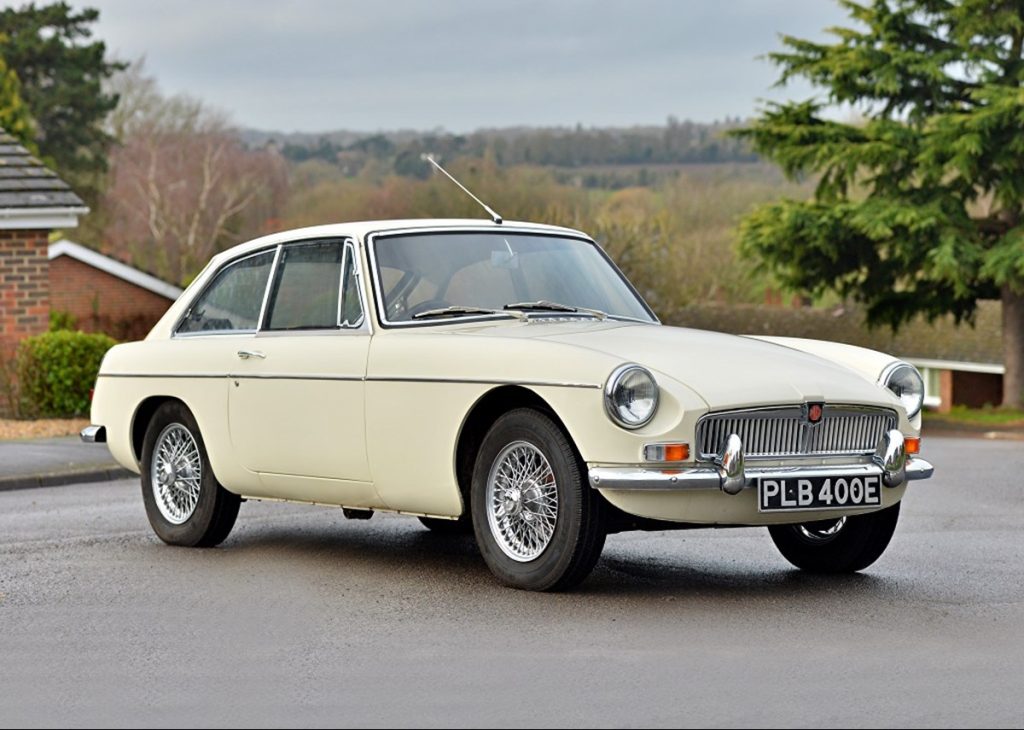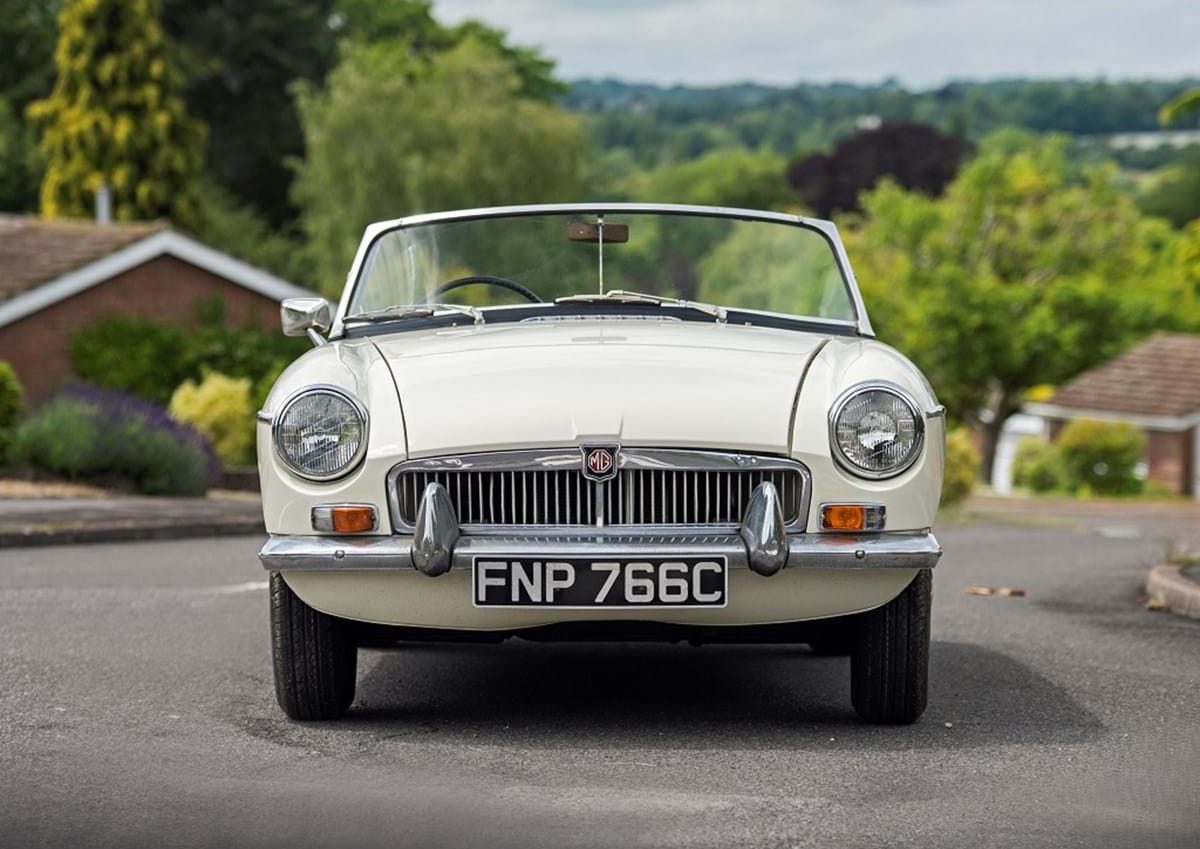Author: Nik Berg
One of the many benefits of owning a classic car is that it will be exempt from the UK’s annual MOT test, as long as it meets the Driver and Vehicle Licensing Agency (DVLA) criteria. That potentially makes for an annual saving of over £50 which could be spent on maintenance, fuel, or a few pit stops at your favourite greasy spoon. However, before you start ordering new parts or a roadside burger, read on to discover all the UK MOT exemption rules for classic cars.
What we will cover:
- MOT Rules for Classic Cars
- MOT Exemptions Explained
- Insurance Requirements and MOT
- Should you get an MOT anyway?

MOT Rules for Classic Cars
UK MOT exemption for classic cars is based on a rolling 40-year rule. Once your car has passed the age of 40 years from its build date, you no longer need to take it for MOT testing each year. If you don’t know the exact date that your car was built, then defer to the date of first registration, instead. The only other caveat is that no ‘substantial changes’ have been made during the last 30 years, such as replacing the chassis, body, axles or engine – so if you have resto-modded your motor you may well need to keep up with the annual MOT, depending on the extent of the modifications. Full guidance on what counts as these substantial changes is available at the DVLA website. If you are still unsure, then an expert on your make and model can probably help. Track one down with the Federation of British Historic Vehicle Clubs.


MOT Exemptions Explained
It’s not an automatic process to get your classic car exempted from its annual MOT once it reaches 40 years of age. You will need to apply to the DVLA for Historic Vehicle Tax Exemption. To do that you will need to visit a Post Office with your log book (V5C), your road tax reminder (if you have one) and evidence of a current MOT. You will then need to fill out a Declaration of exemption from MOT form (V112), confirming that your car now fits in Category R (A vehicle other than a public service vehicle registered or manufactured 40 years ago and which has not been substantially changed in the last 30 years). The Post Office will then send these forms to the DVLA for approval and, within a few days (hopefully) your classic car will now be exempt from having to have an annual MOT test. Remember that this does not automatically exempt your car from Road Tax, however, as the date for taxation is calculated from 1 April, as long as your classic car was registered before 1 January, 40 years earlier.
Insurance Requirements and the MOT
You will need to insure your classic car whether it is MOT exempt or not. It’s a legal requirement for all vehicles used on the road to be covered, and the only way to protect your investment. For your classic car it’s well worth getting a specialist policy as it will include agreed value cover, limited mileage use, and other benefits. Insurers will also make it a requirement for your car to be kept in roadworthy condition, even if an MOT certificate isn’t needed. The classic car MOT exemption rules aren’t an excuse to skimp on maintenance.

Should you get an MOT anyway?
Although it’s not a legal requirement for your classic car to have an MOT test once it has reached the 40-year mark, the law also says you need to keep it ‘roadworthy’. Whether you’re a DIY mechanic or have your pride and joy looked after by a trusted specialist, having an MOT test is actually a relatively inexpensive way to check its fitness. Tyre wear, brake performance, body and chassis condition, lights, seats and seatbelts, washers, wipers and suspension all get the once-over at the MOT testing station. If you have your car serviced regularly such items may well be checked and documented, but a file full of clean MOT certificates is still useful should you ever decide to sell your classic car, as it proves the vehicle has been cherished.
If you’re doing the maths and thinking of all the spark plugs or frothy coffees you could buy by not having your classic car MOT tested then consider that if you are caught by the police with a vehicle in a dangerous condition you could be fined up to £2,500 and get three penalty points on your licence.
Keep your classic on the road
At Hagerty, our mission is simple: to help you protect the car you love. Discover trusted classic car insurance from the people who get it.










I totally disagree with the exemption policy. I believe that any responsible owner of a vehicle that is over 40 years old would want that vehicle to be independently checked on an annual basis to ensure it is safe to drive.
It is easy to be drawn into a sense of false security as wear and tear on key components is gradual and I doubt many would be aware of them and as you continue to drive the vehicle the first you would know that something was wrong is a when the component breaks for fails on your way to an important event.
Personally I have another 2 years before my cars start being tax exempt (which will be very nice) but I will continue having them tested for as long add I own them.
So please continue having an annual MoT test for your own and everyone else’s safety.
I have had to replace perfectly good almost unworn kingpins more than once on my 2CV just to satisfy over critical testers who do not understand the way these cars have a certain amount of play due to steering leverage effects, which does not affect the driving control or safety at all. I am very relieved that the car is now over 40 years old! I will of course be regularly checking all the safety – critical parts, myself, as I always did. Incidentally, having passed the MOT last time, a week later a steel brake pipe burst where it couldn’t be seen inside an axle tube. I replaced it and will be regularly checking this for my peace of mind.(unlike the MOT)
Fine to have voluntary tests done if you are not totally confident of your mechanical skills, but the tests should be at level appropriate to the age of the car, and also without the “impoundment” potential of the tester deciding there is a “dangerous fault” making it risky to carefully return home to fix it if there are ANPR cameras on the route, assuming automatic immediate DVLA notification. The voluntary tests should be for information to the owner of the classic as to it’s condition. Not DVLA recorded. It is then the owners responsibility to decide what to do, bearing in mind the legal requirements for roadworthiness.
How do you overcome the strict emission tests, there is no way my 58 year old car would pass ??
I will always get my cars MOT’ed, i think it more important for older cars to have an MOT, older cars are more likely going to suffer from rust, this can be dangerous if it effects any structural ares of a car.
If you are in an accident and your car is inspected by the insurance company and they find a structural problem with the car they will NOT payout, if they find signs of poor maintenance they may not pay out. It makes good sense to have your classic MOT’ed every year
Could always have a pre-MOT test done at a garage, so if the ‘tester’ is over zealous/doesn’t understand an old vehicle precular bits (Triumph Dolmite front wheel bearings/Range Rover Classic rear shock absorbers rubbers) it won’t matter as it won’t be recorded as a DVLA failure since it is not on the system
Emissions? The only criterion for a car that age is ‘excessive smoke’. And when it was MOTd, my Rover V8 used to pass, I have my own Gunson Gastester so I checked the emissions myself and adjusted the carbs accordingly.
I do not have my two cars MOTd.
I carry out annual maintenance, I even have my own Tapley meter. However, I do have my Landy looked at by the garage every 2/3 years as they are rather rust prone.
And I agree that the exemption should not apply to cars of the 70s, which tend to be ghastly rust buckets. I used to have a Silver Shadow, which was rotten as a pear and had tyres 25 years old when I bought it, the notion that I could drive it with no MOT is rather alarming.
It depends on the owner… if one has the facilities, and the willingness to crawl underneath, then make your own decisions about roadworthiness. However, if one is mechanically ignorant and too fat to get out and get under, then find a classics-friendly garage for an MOT.
Important note. If you vehicle was registered/manufactured before 1.1.1960 then the bit about modifications doesn’t apply as these vehicles were MoT exempted under previous different legislation in 2007. Also a vehicle becomes MoT exempt the day after it is 40 years old. Historic tax class is applicable on the first of April after 40 years old, the cut off date being 7th January. One of my cars (I have two historic cars and 8 historic bikes) an e30 BMW is 3rd March 1986, so it will be MoT exempt 4th March 2026 and Historic on 1st April 2027. I have taken all my vehicles through this rolling process, which started in 2017, including my 1956 BSA which has been Historic since 1993 (John Majors 25 year rolling Historic) and MoT exempt since 2007.
If you lived in Northern Ireland then you would say no! I had my MGA MoTd once (before NI recognised the category of “historic vehicle”) at one of the Government agency run MoT stations – no commercial outlets allowed here, only to have to explain to the “mechanic” that the ignition is on the dash, not under the steering column, it doesnt twist to start the car, the starter is a pull switch on the dash and the handbrake operates the opposite way to a more modern one – fly-off as standard in the MGA. Then I had to explain that the car has a separate chassis and not to place the wooden blocks under the body sills on the ramp – which is a wheel free device, but to place the blocks under the chassis, pleading with him not to place them over fuel and brake pipes or electricals!! Never again – I service and maintain the car – using specialists for some operations and get an old fashioned father and son workshop which understands cars of this age to do a check.You are lucky in GB in being able to choose your MoT supplier and hopefully discuss with them how to treat your “classic”.